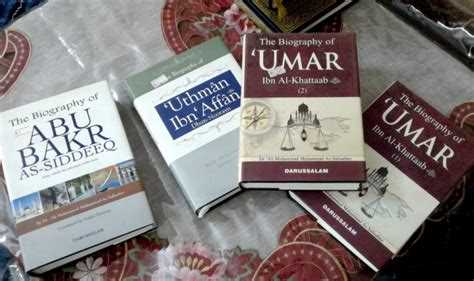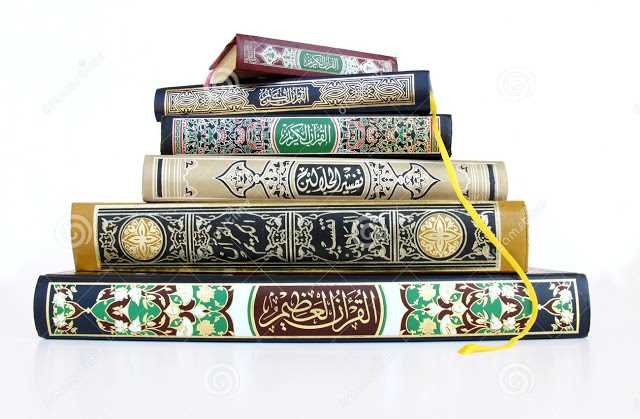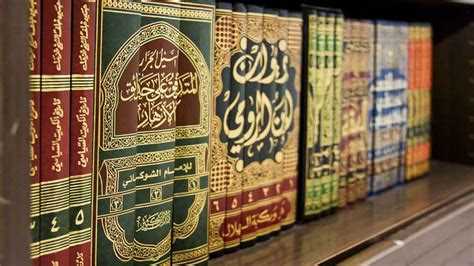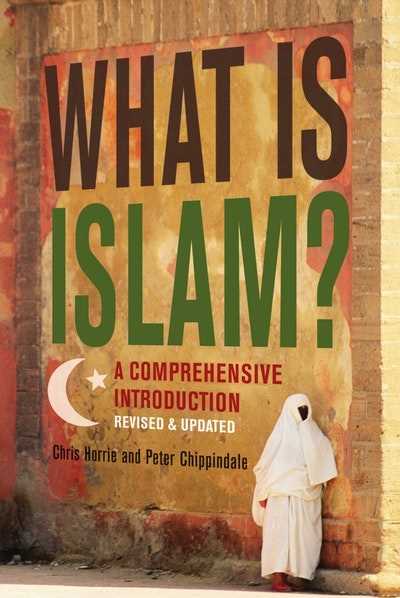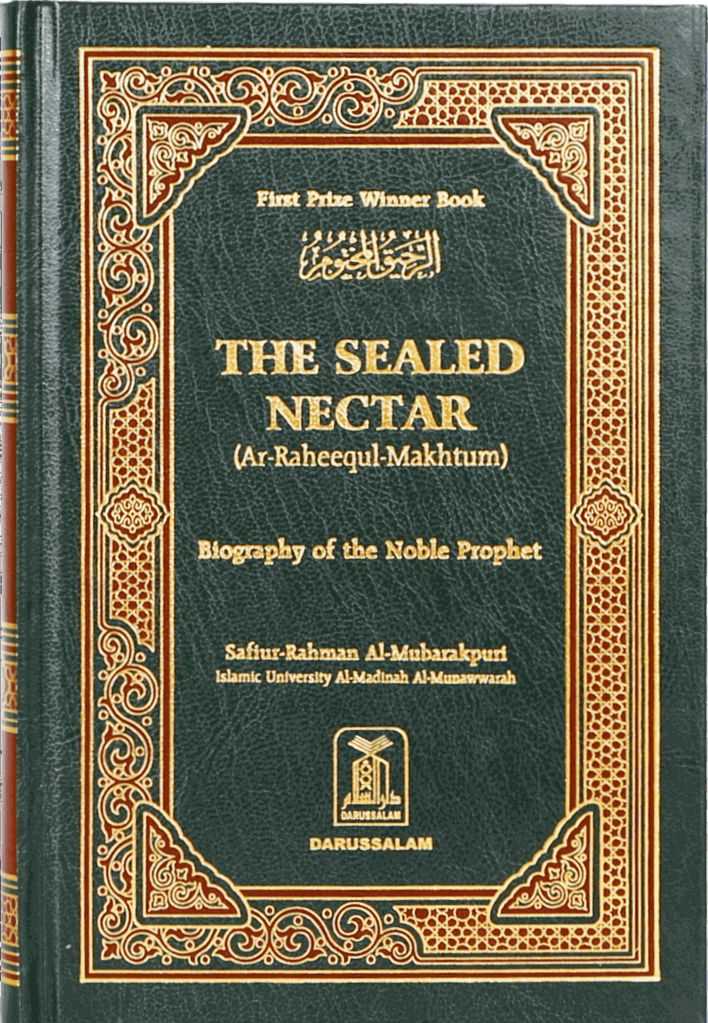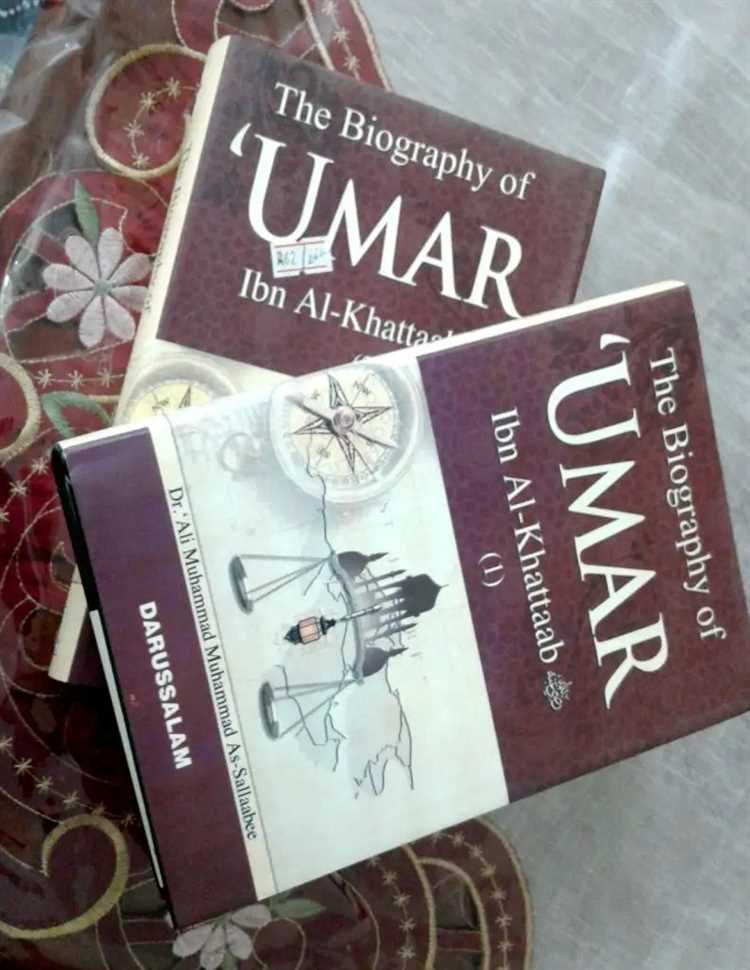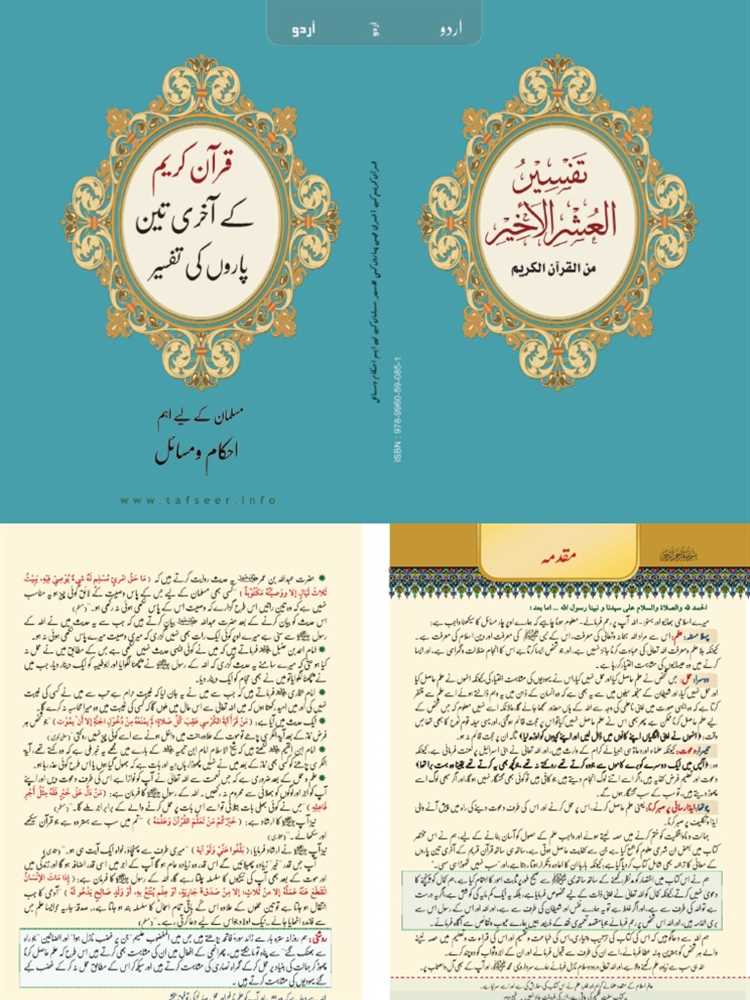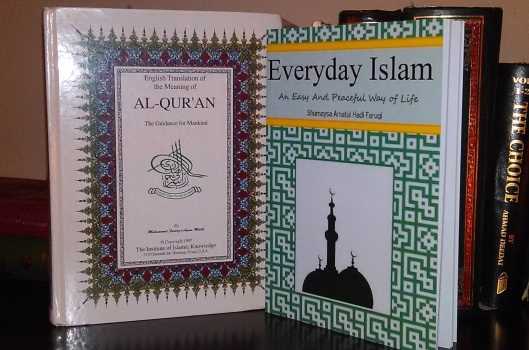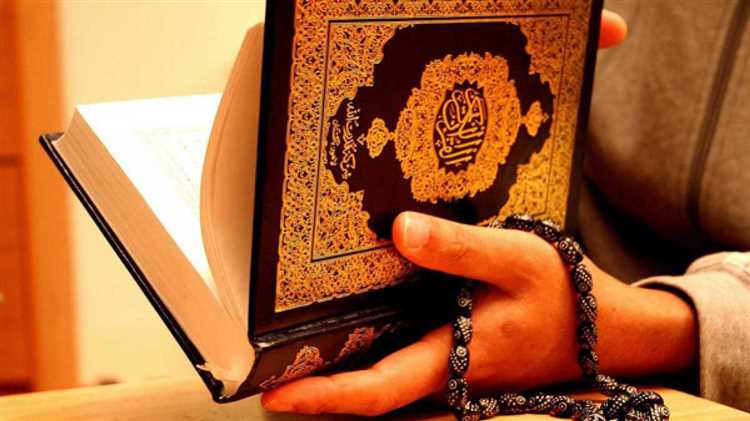Islam is a religion that has a rich history and a vast body of literature. For those who are interested in learning more about Islam and its teachings, there are numerous books available that provide insight into various aspects of the religion. Whether you are a beginner or an advanced learner, it can be challenging to decide which books to read as there are so many options to choose from. This comprehensive guide aims to help you navigate through the plethora of Islamic books and find ones that are most suitable for your needs.
When it comes to Islamic literature, the Quran is, of course, the most important book to read. It is considered the word of Allah and serves as the primary source of guidance for Muslims around the world. Reading and studying the Quran is an essential part of understanding the principles and teachings of Islam. There are various translations and interpretations of the Quran available, so it’s important to choose one that is scholarly and authoritative.
In addition to the Quran, there are several other essential books that provide valuable insights into Islamic history, theology, and spirituality. One such book is “The Sealed Nectar” by Safiur Rahman Mubarakpuri, which provides a detailed account of the life of the Prophet Muhammad (peace be upon him) and the early years of Islam. This book is highly recommended for those who want to gain a deeper understanding of the Prophet’s life and the origins of Islamic civilization.
Another important book to consider is “The Forty Hadith of Imam Nawawi.” Hadiths are the sayings, actions, and approvals of the Prophet Muhammad (peace be upon him). Imam Nawawi’s collection of forty hadiths is widely regarded as one of the most comprehensive and authentic compilations. Reading this book can help in understanding the practical teachings of Islam and applying them to daily life.
Aside from these foundational texts, there are numerous other books that cover a wide range of topics within Islam, including Islamic law, spirituality, theology, and Islamic history. Some notable recommendations include “The Autobiography of Malcolm X” by Malcolm X and Alex Haley, “The Heart of the Qur’an” by Lex Hixon, and “Muhammad: His Life Based on the Earliest Sources” by Martin Lings. These books offer unique perspectives and insights into different aspects of Islam and can be valuable additions to your reading list.
Ultimately, the choice of Islamic books to read depends on your personal interests and the specific aspects of Islam that you wish to explore further. Remember that it’s important to approach these books with an open and critical mind, seeking knowledge and understanding rather than bias confirmation. By engaging with a diverse range of Islamic literature, you can gain a more comprehensive and nuanced understanding of this vibrant and influential religion.
The Importance of Reading Islamic Books
Reading Islamic books plays a vital role in the life of a Muslim. It not only strengthens their faith but also enriches their knowledge about the religion. Here are some reasons why reading Islamic books is important:
- Enhancing Knowledge: Islamic books cover a wide range of topics, including theology, Quranic studies, hadith, fiqh (Islamic jurisprudence), history, and more. By reading these books, Muslims can gain a deeper understanding of their religion and its teachings.
- Strengthening Faith: Islamic books provide valuable insights into the principles and beliefs of Islam. They help Muslims develop a stronger connection with Allah and deepen their faith. Reading about the lives of prophets and scholars can also inspire and motivate individuals in their spiritual journey.
- Guidance on Personal and Social Matters: Islamic books offer guidance on various aspects of life, including marriage, parenting, finance, ethics, and etiquettes. They provide practical advice rooted in Islamic teachings, allowing individuals to navigate through life challenges while adhering to religious principles.
- Learning from Scholars: Many Islamic books are written by renowned scholars who have dedicated their lives to the study of Islam. By reading their works, Muslims can benefit from the knowledge and wisdom of these scholars and understand complex topics in a more accessible manner.
- Preserving Islamic Heritage: Islamic books serve as a means of preserving the rich intellectual and cultural heritage of Islam. They contain the wisdom of previous generations and ensure that Islamic teachings are passed down to future generations.
- Counteracting Misconceptions: Reading Islamic books equips Muslims with the knowledge to counteract misconceptions and misunderstandings about Islam. By understanding the teachings of Islam from authentic sources, individuals can provide accurate information and address misconceptions in a constructive manner.
Overall, reading Islamic books is an essential practice for Muslims seeking to grow spiritually, increase their knowledge, and live a life in accordance with the teachings of Islam. It allows individuals to deepen their faith, gain insights from scholars, and navigate through various personal and social matters while staying true to their religious beliefs.
The Role of Islamic Books in Spiritual Development
Islamic books play a significant role in the spiritual development of individuals and communities. They serve as a source of knowledge and guidance for Muslims seeking a deeper understanding of their faith.
1. Knowledge and Education:
Islamic books provide a platform for individuals to broaden their knowledge and gain a better understanding of the teachings of Islam. They cover various aspects of the faith, including the Quran, Hadith (sayings and actions of Prophet Muhammad), fiqh (Islamic jurisprudence), and spirituality.
2. Spiritual Reflection:
Reading Islamic books encourages spiritual reflection as they often contain stories, anecdotes, and wisdom from the lives of prophets, scholars, and pious individuals. These stories inspire readers to reflect on their own lives and strive for spiritual growth.
3. Moral Guidance:
Islamic books outline the moral teachings and principles of Islam, providing guidance on how to live a righteous and ethical life. They emphasize virtues such as honesty, humility, kindness, and compassion, which are essential for personal and societal development.
4. Personal Development:
Islamic books offer practical advice and strategies for personal development and self-improvement. They cover topics like time management, anger management, effective communication, and developing a strong connection with Allah. These books empower individuals to overcome challenges and strive for personal excellence.
5. Strengthening Faith:
Reading Islamic books helps strengthen one’s faith and devotion to Allah. They deepen the understanding of foundational beliefs, rituals, and the importance of constant remembrance of Allah. Islamic books often contain reminders of the Hereafter and the significance of preparing for the eternal life.
6. Diverse Perspectives:
Islamic books offer a wide range of perspectives on complex issues and debates within the Muslim community. They present different interpretations of Islamic teachings, helping readers appreciate the diversity and richness of Islamic thought.
7. Community Building:
Islamic books contribute to the development of strong and knowledgeable Muslim communities. They facilitate discussions, group studies, and book clubs, fostering a sense of community and unity among believers.
8. Nurturing Intellectual Curiosity:
Islamic books encourage individuals to engage in critical thinking and intellectual exploration. They inspire questions, stimulate curiosity, and provoke thoughtful discussions, nurturing a love for seeking knowledge and understanding.
In conclusion, Islamic books play a vital role in the spiritual development of individuals by providing knowledge, moral guidance, personal development strategies, and strengthening faith. They promote intellectual curiosity and foster a sense of community, making them an invaluable resource for Muslims aiming to lead fulfilling and spiritually enriching lives.
Islamic Books for Beginners
If you are new to Islam and are looking to explore its teachings, here are some recommended Islamic books for beginners:
-
The Qur’an: The holy book of Islam, the Qur’an is a must-read for all Muslims. It is the primary source of guidance for Muslims and contains the revelations of Allah to Prophet Muhammad (peace be upon him).
-
The Hadith: The Hadith are the sayings and actions of Prophet Muhammad (peace be upon him) and provide practical guidance for Muslims in their daily lives. It is recommended to start with a compilation of Hadith, such as Sahih al-Bukhari or Sahih Muslim.
-
Introduction to Islam: There are several introductory books available that provide an overview of the basic beliefs and practices of Islam. Some popular titles include “Islam: A Short History” by Karen Armstrong and “The Essential Rumi” by Jalal ad-Din Muhammad Rumi.
-
The Sealed Nectar: This book by Safiur Rahman Mubarakpuri is a popular biography of Prophet Muhammad (peace be upon him). It provides insights into his life, character, and mission, making it a great starting point for beginners.
-
Fiqh Made Easy: Understanding the principles of Islamic jurisprudence (fiqh) is important for practicing Islam. “Fiqh Made Easy” by Saalih ibn Ghaanim al-Sadlaan is a beginner-friendly book that covers the basics of fiqh in a simple and concise manner.
These books will help you gain a basic understanding of Islam and its teachings. It is recommended to read them in conjunction with seeking knowledge from reliable scholars and attending Islamic classes to deepen your understanding of the faith.
Essential Islamic Books for Understanding the Quran
The Quran is the most important text in Islam and is considered by Muslims to be the word of God as revealed to the Prophet Muhammad. To deepen your understanding of the Quran, here are some essential Islamic books that provide valuable insights:
1. Tafsir Ibn Kathir
Tafsir Ibn Kathir is one of the most widely recognized and comprehensive books of Quranic exegesis. Written by the Islamic scholar Ibn Kathir, it provides detailed explanations and interpretations of the verses of the Quran. This book covers various aspects such as the historical context, linguistic analysis, and theological perspectives.
2. The Study Quran
The Study Quran is a comprehensive and accessible resource for understanding the Quran. It includes a reliable translation of the Quran, along with detailed commentary and essays from various Islamic scholars. This book not only provides a deep understanding of the text but also explores the diverse interpretations and perspectives within the Islamic tradition.
3. Approaching the Qur’an: The Early Revelations
Written by Michael Sells, this book focuses on the early revelations of the Quran and provides insights into the historical, cultural, and literary context in which they were revealed. It offers a fresh and engaging perspective on the Quran and highlights its poetic nature and the profound impact it had on the community of believers at the time.
4. In the Shade of the Qur’an
In the Shade of the Qur’an is a monumental work by Sayyid Qutb that provides a comprehensive and contemporary commentary on the entire Quran. Divided into 30 volumes, this book covers each chapter of the Quran in detail and explores its moral, social, and political implications. It offers a deeper understanding of the Quran’s teachings and their relevance in the modern world.
5. The Meaning of the Holy Qur’an
Abdullah Yusuf Ali’s The Meaning of the Holy Qur’an is a widely acclaimed translation and commentary on the Quran. Known for its readability and clarity, this book provides an insightful interpretation of the Quranic verses. It also includes footnotes that explain the historical and cultural context of certain verses.
These books serve as valuable resources for those seeking a deeper understanding of the Quran. Each offers unique perspectives and insights that can enhance your comprehension of the Islamic scripture and its teachings.
Islamic Books on Prophetic Traditions (Hadith)
The Hadith is a compilation of the teachings, actions, and approvals of the Prophet Muhammad (peace be upon him). It serves as a second source of guidance for Muslims after the Quran. There are several Islamic books that focus on the study, understanding, and explanation of the Prophetic traditions. Here are some notable books on Hadith:
-
Sahih Bukhari: Compiled by Imam Bukhari, this book is considered the most authentic collection of Hadiths. It contains 7,275 narrations categorized under various topics and provides a comprehensive understanding of the Prophetic traditions.
-
Sahih Muslim: Compiled by Imam Muslim, this book is also highly regarded for its authenticity. It contains 7,563 narrations and is organized based on the topics. Sahih Muslim is often studied alongside Sahih Bukhari to gain a complete understanding of the Hadith.
-
Jami` at-Tirmidhi: Compiled by Imam Tirmidhi, this book includes 3,956 narrations arranged into different chapters. It provides valuable insights into the various aspects of the Prophetic traditions and their relevance.
-
Sunan Abu Dawood: Compiled by Abu Dawood, this book contains 4,800 narrations categorized into different chapters. It focuses on practical aspects of the Prophetic traditions, such as etiquette, behavior, and social interactions.
-
Sunan Ibn Majah: Compiled by Ibn Majah, this Hadith collection includes 4,341 narrations. It covers a wide range of topics, including prayer, fasting, pilgrimage, and many others, providing a holistic view of the Prophetic traditions.
These books, among others, are widely studied by scholars and individuals seeking a deeper understanding of Islamic teachings. They serve as a valuable resource for Muslims to live their lives in accordance with the teachings of the Prophet Muhammad (peace be upon him).
Contemporary Islamic Books on Social Issues
If you are interested in exploring the intersection of Islamic teachings and contemporary social issues, there are several books that provide valuable insights and perspectives. These books address a wide range of topics including gender equality, social justice, environmentalism, and human rights.
1. “Women and Gender in Islam: Historical Roots of a Modern Debate” by Leila Ahmed
This book delves into the complex and controversial issue of women’s rights in Islam, examining the historical context and the various interpretations of Islamic texts regarding gender roles. Ahmed provides a nuanced understanding of the diverse perspectives within the Muslim community and offers thought-provoking insights on the evolution of women’s rights movements in Muslim-majority countries.
2. “Reclaim Your Heart” by Yasmin Mogahed
Mogahed’s book explores the challenges faced by individuals in the modern society and offers guidance on finding spiritual tranquility and fulfillment. Drawing from Islamic teachings, she addresses topics such as love, loss, and happiness, providing a fresh perspective on personal growth and self-discovery.
3. “Radical Love: Teachings from the Islamic Mystical Tradition” by Omid Safi
In this book, Safi delves into the teachings of Islamic mystics like Rumi and Ibn Arabi to explore the concept of radical love and its potential to transform individuals and society. He emphasizes the importance of love, compassion, and interconnectedness as guiding principles for confronting social challenges and fostering harmonious relationships.
4. “Islam and the Challenge of Human Rights” by Abdulaziz Sachedina
Sachedina examines the compatibility of Islamic principles with the modern concept of human rights. He explores the historical development of human rights within the Islamic tradition and addresses contemporary debates surrounding issues such as religious freedom, gender equality, and freedom of speech.
5. “Ecology and the Environment: Perspectives from the Islamic Tradition” edited by Richard Foltz, Frederick M. Denny, and Azizan Baharuddin
This collection of essays examines the Islamic perspective on environmentalism and the ethical responsibilities of Muslims towards the natural world. It explores topics such as sustainable development, climate change, and the protection of biodiversity, providing readers with insights on how Islamic teachings can inform environmental activism.
These books represent a small selection of the many contemporary Islamic works that address social issues from an Islamic perspective. Reading them can help deepen your understanding of the diverse range of perspectives within the Muslim community and provide insights on how Islamic teachings can contribute to discussions on contemporary social challenges.
Islamic Books on Women’s Rights and Empowerment
Islam places great importance on the rights and empowerment of women. Here are some Islamic books that delve into the topic of women’s rights and empowerment within the framework of Islamic teachings.
-
“Women in Islam” by Leila Ahmed: This book provides a comprehensive analysis of women’s roles and rights in Islam, exploring historical perspectives, cultural influences, and interpretations of Islamic texts.
-
“The Veil and the Male Elite: A Feminist Interpretation of Women’s Rights in Islam” by Fatima Mernissi: Mernissi critically examines the traditional interpretations of Islamic texts that have contributed to the subjugation of women, offering an alternative feminist perspective on women’s rights in Islam.
-
“Qur’an and Woman: Rereading the Sacred Text from a Woman’s Perspective” by Amina Wadud: Wadud challenges traditional interpretations of the Qur’an that have been used to justify patriarchal practices, advocating for a more egalitarian reading that empowers women in both religious and social spheres.
-
“The Rights of Women in Islam” by Dr. Shaukat N. Malik: This book explores the rights of women in Islam from a legal perspective, discussing topics such as marriage, divorce, inheritance, and education, highlighting the rights granted to women by Islamic teachings.
-
“The Position of Women in Islam: A Progressive View” by Mohammad Kamran: Kamran examines the position of women in Islam, emphasizing the progressive aspects of the religion that promote women’s empowerment, equality, and social justice.
These books provide valuable insights into the rights and empowerment of women within the context of Islam, challenging conventional narratives and offering alternative interpretations that promote gender equality and social justice.
Popular Islamic Books on Islamic History
Islamic history is a rich and vibrant field, with numerous books that provide insights into the development and spread of the Islamic faith, the lives of the Prophet Muhammad and his companions, and the various dynasties and caliphates that emerged over the centuries. Here are some popular Islamic books on Islamic history that you may find interesting:
- “The Sealed Nectar” by Safiur Rahman Mubarakpuri: This book provides a detailed account of the life of the Prophet Muhammad, his teachings, and the early days of Islam.
- “The History of Islam” by Akbar Shah Najeebabadi: This book offers a comprehensive overview of the history of Islam, from its origins in 7th century Arabia to its global expansion and influence.
- “Lost Islamic History: Reclaiming Muslim Civilisation from the Past” by Firas Alkhateeb: This book explores the lesser-known aspects of Islamic history, highlighting the contributions of Muslim scholars, scientists, and artists throughout the centuries.
- “The Great Arab Conquests: How the Spread of Islam Changed the World We Live In” by Hugh Kennedy: This book examines the military campaigns and conquests carried out by the early Muslims, and their impact on world history.
- “Muhammad: His Life Based on the Earliest Sources” by Martin Lings: This biography provides a detailed and accessible account of the life of the Prophet Muhammad, drawing from the earliest Islamic sources.
- “The Succession to Muhammad: A Study of the Early Caliphate” by Wilferd Madelung: This book delves into the early history of Islam and the struggle for leadership that ensued following the death of the Prophet Muhammad.
These books offer valuable insights into the history of Islam and can help deepen your understanding of the faith and its development over time. Whether you are a student of Islamic studies or simply interested in learning more about this fascinating religion, these books are a great place to start.
Islamic Books on Financial Management and Ethics
Islamic financial management and ethics are important components of practicing Islam. Below are some recommended books that cover these topics in detail:
- “Islamic Finance: Principles and Practice” by Hans Visser – This book provides an introduction to the principles and practices of Islamic finance. It covers topics such as the prohibition of interest (riba), profit and loss sharing, and the role of Islamic financial institutions. It also discusses the ethical considerations in Islamic finance.
- “Islamic Finance and Banking: Theoretical and Practical Perspectives” by Mahmoud A. El-Gamal – In this book, El-Gamal provides an in-depth analysis of Islamic finance and banking. It explores the history, principles, and practices of Islamic financial institutions. The book also examines the ethical foundations of Islamic finance and the challenges faced by the industry.
- “Islamic Ethics and Finance: An Exploratory Study” by Mehmet Asutay – Asutay explores the ethical dimensions of Islamic finance in this book. He discusses the importance of ethical behavior in financial transactions, the concept of justice in Islamic finance, and the role of Islamic ethics in shaping the industry. The book also analyzes the current practices and challenges in Islamic finance from an ethical perspective.
- “Islamic Banking and Finance: Fundamentals and Contemporary Issues” by Saiful Azhar Rosly and Abul Hassan – This book covers the fundamentals of Islamic banking and finance, including the principles of Islamic economics and the prohibition of interest. It also discusses contemporary issues in Islamic finance, such as product development, risk management, and social responsibility. The authors emphasize the importance of ethics in Islamic finance throughout the book.
These books provide a comprehensive understanding of Islamic financial management and ethics. Whether you are a student, practitioner, or simply interested in learning more about Islamic finance, these books are highly recommended resources.
Islamic Books on Islamic Philosophy and Theology
Islamic philosophy and theology are important branches of Islamic studies that delve into the intellectual and theoretical aspects of Islam. The following books provide valuable insights into the philosophical and theological dimensions of the Islamic faith:
- “The Reconstruction of Religious Thought in Islam” by Allama Muhammad Iqbal: This book explores the principles of Islamic philosophy and its relevance in the modern world. It discusses various aspects of Islamic theology, including the nature of God, the concept of prophethood, and the relationship between religion and science.
- “A History of Islamic Philosophy” by Seyyed Hossein Nasr: This comprehensive work provides an overview of Islamic philosophy from its early beginnings to the contemporary period. It covers various philosophical schools and thinkers, discussing their contributions to Islamic theology and intellectual development.
- “The Incoherence of the Philosophers” by Imam Ghazali: In this influential work, Imam Ghazali critiques the philosophical ideas prevalent during his time. He challenges the views of philosophers and asserts the supremacy of Islamic theology. This book is instrumental in understanding the development of Islamic philosophy.
- “The Essence of Islamic Philosophy” by John Cooper: This book provides a comprehensive introduction to the main themes and concepts of Islamic philosophy. It explores the works of influential Muslim philosophers, such as Ibn Sina and Ibn Rushd. The author presents Islamic philosophy as a distinct intellectual tradition with its own unique insights.
- “An Introduction to Islamic Philosophy” by Oliver Leaman: In this introductory book, Oliver Leaman provides a clear and concise overview of Islamic philosophy. He discusses the major philosophical ideas in Islam, including metaphysics, epistemology, and ethics. The book also explores the interaction between philosophy and Islamic theology.
These books offer valuable resources for those interested in studying Islamic philosophy and theology. They provide a deeper understanding of the intellectual traditions within Islam and shed light on the intersection of philosophy and religious thought.
Islamic Books on Sufism and Mysticism
Sufism is the mystical branch of Islam that focuses on spiritual development and the direct experience of God. It is an ancient and rich tradition that has a profound impact on Islamic culture and spirituality. If you are interested in learning more about Sufism and mysticism, here are a few Islamic books that you should consider reading:
-
“The Sufis” by Idries Shah
This book provides an excellent introduction to the world of Sufism. It explores the history, philosophy, and practices of Sufism, and includes anecdotes and stories that illustrate key Sufi concepts. This book is perfect for beginners who want to get a general understanding of Sufism.
-
“The Conference of the Birds” by Farid al-Din Attar
This classic work of Sufi literature tells the story of a group of birds who embark on a journey to find their king, the mythical Simorgh. Along the way, the birds face various challenges and learn valuable lessons about spirituality and self-discovery. This book is a must-read for anyone interested in Sufi poetry and allegorical storytelling.
-
“The Essential Rumi” translated by Coleman Barks
Rumi is one of the most well-known Sufi poets, and his poems are beloved by people of all faiths. This collection features some of Rumi’s most beautiful and inspiring poems, which explore themes of love, spirituality, and the longing for union with the Divine. If you enjoy poetry and want to delve into the mystical world of Rumi, this book is a great starting point.
-
“The Way of Sufi” by Idries Shah
In this book, Idries Shah provides a practical guide to Sufism, exploring its teachings and practices in a clear and accessible way. He covers topics such as meditation, chanting, and the role of the teacher in the Sufi tradition. This book is a valuable resource for those who want to deepen their understanding of Sufism and incorporate its principles into their own spiritual journey.
-
“Alchemy of Happiness” by Al-Ghazali
Written by the influential Islamic scholar Al-Ghazali, this book explores the nature of happiness and how to attain it. Al-Ghazali draws on Sufi teachings to provide practical advice on living a meaningful and fulfilling life. This book is a timeless guide to inner contentment and spiritual growth.
These are just a few examples of the many Islamic books available on Sufism and mysticism. Whether you are a beginner or a seasoned seeker, exploring the world of Sufism through these books can deepen your understanding of Islamic spirituality and provide inspiration for your own spiritual journey.
Islamic Books on Ethics and Morality
Islam places a great emphasis on ethics and morality, providing a comprehensive guide for Muslims to lead a righteous and virtuous life. Throughout history, numerous Islamic scholars have written books that delve into the ethical teachings of Islam and guide individuals on the path of moral excellence. Here are some highly recommended Islamic books on ethics and morality:
-
The Book of Assistance by Imam al-Haddad
This classic book is a timeless guide that covers various aspects of spirituality, ethics, and character-building. It offers practical advice on how to develop a strong moral compass and navigate life’s challenges with integrity.
-
The Content of Character by Shaykh Hamza Yusuf
This book explores the importance of character and provides insights into the ethical teachings of Islam. It highlights the significance of cultivating virtues such as honesty, humility, patience, and compassion in one’s personal and social life.
-
The Prophetic Character by Muhammad Sa’id Ramadan al-Buti
Written by a renowned Islamic scholar, this book examines the character of the Prophet Muhammad (peace be upon him) as a model for ethical behavior. It presents valuable lessons from his life and teachings, inspiring readers to emulate his exemplary conduct.
-
Patience and Gratitude by Ibn Qayyim al-Jawziyya
This book explores the virtues of patience and gratitude, providing practical guidance on how to develop these qualities in daily life. It sheds light on their importance in fostering strong moral character and maintaining a positive mindset.
-
Book of Wisdoms by Ibn Ata’illah
This book offers profound insights into spiritual and ethical wisdom, drawing from the teachings of Islamic scholars and mystics. It encourages self-reflection and provides guidance on how to attain spiritual purification and moral excellence.
These Islamic books on ethics and morality provide invaluable guidance for individuals seeking to develop their character and lead a righteous life. They offer practical advice, spiritual insights, and teachings from the Islamic tradition, inspiring readers to cultivate virtues and uphold ethical principles in all aspects of their lives.
Islamic Books on Parenting and Family Values
1. “The Ideal Muslimah” by Dr. Muhammad Ali al-Hashimi
This book provides women with a comprehensive guide on how to navigate through the challenges of being a Muslimah (a Muslim woman) in the modern world. It covers various aspects of life, including marriage, parenting, and raising children.
2. “Raising Children in Islam” by Shaykh Faraz Rabbani
Shaykh Faraz Rabbani, a renowned Islamic scholar, shares practical advice and guidance on how to raise children grounded in Islamic values. This book covers topics such as instilling love for Allah and His Messenger in children, discipline, and character development.
3. “Parenting in Islam” by Dr. Ekram Beshir
This book offers insights into the different stages of child development from an Islamic perspective. It provides practical tips and advice on how to nurture a child’s physical, intellectual, emotional, and spiritual growth while maintaining Islamic principles.
4. “The Muslim Family Guide” by Ruqaiyyah Waris Maqsood
Written by a respected Muslim author, this book explores various aspects of family life in Islam. It covers topics such as choosing the right spouse, maintaining a harmonious marital relationship, and fostering a supportive and nurturing environment for children.
5. “Islamic Guidelines for Individual & Social Reform” by Sayyid Muhammad Rizvi
While not specifically focused on parenting, this book provides valuable insights into creating a positive and righteous family environment. It addresses topics such as communication, conflict resolution, and fostering strong family bonds based on Islamic teachings.
These books offer valuable resources for individuals seeking guidance on parenting and family values from an Islamic perspective. They provide practical advice and insights to help Muslims navigate the challenges of raising children while instilling strong Islamic values within the family unit.
Islamic Books on Health and Wellness
Islam encourages its followers to lead healthy and balanced lives in order to maintain physical, mental, and spiritual well-being. There are numerous Islamic books that offer guidance on health and wellness from an Islamic perspective. These books cover a wide range of topics, including nutrition, exercise, mental health, and spiritual practices. Here are some notable Islamic books on health and wellness:
-
Healing with the Medicine of the Prophet
This book by Imam Ibn Qayyim Al-Jawziyya provides a comprehensive guide to the use of Prophetic Medicine in the treatment of various diseases. It explores the medicinal properties of natural remedies mentioned in the hadiths of Prophet Muhammad (peace be upon him).
-
The Natural Health Revolution
In this book, Dr. Bint Aisha explores the principles of Islamic medicine and provides practical advice on how to achieve optimal health through natural remedies, healthy eating, and lifestyle changes.
-
Healthy Eating, Healthy Living
Written by Shaykh Mohammed Nazim Adil al-Haqqani, this book emphasizes the importance of a balanced diet and offers guidance on how to incorporate healthy eating habits into one’s lifestyle. It also provides insights on the spiritual benefits of mindful eating.
-
Mental Health in Islam
Dr. Hooman Keshavarzi explores the Islamic perspective on mental health and delves into topics such as stress management, anxiety, and depression. This book offers practical strategies and spiritual remedies to promote mental well-being.
-
The Mindfulness in Islam Workbook
Written by Suraiya Haroon, this workbook combines mindfulness techniques with Islamic principles to help individuals cultivate self-awareness, reduce stress, and enhance their spiritual connection.
These books provide valuable insights and practical tips for leading a healthy and balanced lifestyle from an Islamic perspective. Whether you are seeking guidance on nutrition, exercise, mental health, or spiritual practices, there are Islamic books available to help you on your journey to well-being.
Islamic Books on Interfaith Dialogue
Interfaith dialogue is an important aspect of promoting understanding and harmony among different religious communities. Islamic books on interfaith dialogue provide valuable insights into the Islamic perspective on dialogue, as well as guidance on how to engage in meaningful conversations with people of different faiths. Here are some Islamic books that focus on interfaith dialogue:
-
“The Qur’an and the Dialogue of Religions” by Mahmoud Ayoub
This book explores the Qur’an’s teachings on interfaith dialogue and the importance of understanding and engaging with people of different religions. Ayoub provides a comprehensive analysis of relevant verses from the Qur’an and offers insights on how to approach interfaith dialogue based on Islamic principles.
-
“Islam and Interfaith Dialogue: A Collection of Papers” edited by Mahmoud M. Ayoub
This compilation of papers by various scholars examines the concept of interfaith dialogue from an Islamic perspective. The book delves into the theological foundations of interfaith dialogue in Islam and addresses practical considerations for engaging in dialogue with people of other faiths.
-
“The Ethics of Interfaith Dialogue: A Christian-Muslim Conversation” by Michael Barnes and Franklin T. Harkins
Although this book is a Christian-Muslim dialogue, it offers valuable insights into the ethics of interfaith dialogue that are relevant to the Islamic context as well. The authors explore ethical questions and challenges that arise in interfaith dialogue and provide thought-provoking perspectives on building bridges of understanding between different religions.
-
“Muslims and Interfaith Engagement: Inclusion and Participation in British Society” by Ataullah Siddiqui
This book focuses on the Muslim experience of interfaith engagement in the context of British society. Siddiqui explores the challenges faced by Muslims in interfaith dialogue and offers recommendations for fostering inclusivity and active participation in creating cohesive communities.
These Islamic books on interfaith dialogue serve as valuable resources for individuals interested in deepening their understanding of Islamic perspectives on engaging with people of different religions. They provide guidance on promoting harmony and cooperation, while respecting the diversity of religious beliefs.
Recommended Islamic Books for Youth
As young Muslims navigate through the challenges and temptations of the modern world, it is essential to equip them with knowledge and guidance from Islamic literature. Here are some highly recommended Islamic books that cater specifically to the youth:
-
“The Sealed Nectar” by Safiur Rahman Mubarakpuri
A biography of the Prophet Muhammad (peace be upon him) that highlights his life and teachings.
-
“The Ideal Muslim” by Muhammad Ali Al-Hashimi
A comprehensive guide on how to be an ideal Muslim in all aspects of life.
-
“The Muslim Teen’s Guide” by Dilara Hafiz
A practical book addressing various issues faced by Muslim teenagers, such as peer pressure, identity, and relationships.
-
“The Forty Hadith for Young Hearts” by Yasmin Mussa
A collection of forty hadiths chosen for their relevance and importance in the lives of young Muslims.
-
“The Islamic Awakening” by Imam Rise of Sudan
An inspiring account of the Islamic revivalism and the role of youth in the process.
These books provide essential knowledge and guidance for young Muslims, helping them navigate through the challenges of life while staying true to their Islamic values.
Islamic Books on Spirituality and Personal Development
Spirituality and personal development are essential aspects of leading a fulfilling and purposeful life. Islamic literature offers a wide range of books that focus on these areas, providing readers with valuable insights, guidance, and inspiration. Here are some notable Islamic books that delve into the realms of spirituality and personal development:
-
“The Alchemist of Happiness” by Imam Al-Ghazali: This book explores the spiritual journey and self-discovery, written by one of the greatest Islamic scholars in history. It offers practical advice on finding inner peace and understanding the true purpose of life.
-
“Purification of the Heart: Signs, Symptoms, and Cures of the Spiritual Diseases of the Heart” by Hamza Yusuf: This book examines the diseases of the heart and provides remedies to heal and purify it. It helps readers identify negative traits and develop positive character traits such as gratitude, patience, and humility.
-
“Revive Your Heart: Putting Life in Perspective” by Nouman Ali Khan: In this book, the author reflects on various aspects of life and provides practical guidance on how to find inner peace, overcome challenges, and develop a strong connection with the Divine.
-
“The Forty Rules of Love” by Elif Shafak: Although not specifically classified as an Islamic book, this novel delves into themes of love, spirituality, and divine connection. It provides a unique perspective on the teachings of Rumi and how they can be applied in one’s spiritual journey.
These books offer valuable insights and practical advice on spirituality and personal development from an Islamic perspective. They can inspire readers to strive for self-improvement, strengthen their faith, and find purpose and meaning in their lives.
Islamic Books on Islamic Art and Calligraphy
If you’re interested in learning about Islamic art and calligraphy, there are several books that can provide a comprehensive understanding of these unique and beautiful art forms.
- The Art of Arabic Calligraphy by Mamoun Sakkal: This book is a perfect introduction to Arabic calligraphy, exploring its history, techniques, and different styles. It also includes step-by-step instructions for beginners.
- Islamic Calligraphy: An Introduction to Arabic Script by Sheila S. Blair and Jonathan M. Bloom: This book explores the development of Arabic calligraphy across Islamic history, analyzing its meaning and symbolism. It also includes stunning illustrations.
- Splendors of Qur’an Calligraphy and Illumination by Martin Lings and Annemarie Schimmel: This book showcases the beauty of Qur’an calligraphy and illumination, highlighting the diversity of styles and techniques used throughout history.
- Islamic Geometric Patterns by Eric Broug: This book focuses on the intricate geometric patterns found in Islamic art, providing a detailed guide on the construction of these patterns and their significance in Islamic culture.
- Islamic Art and Architecture: The System of Geometric Design by Issam El-Said and Ayse Parman: This book explores the mathematical principles behind Islamic geometric design, delving into its symbols, proportions, and construction.
Whether you’re a beginner or an enthusiast, these books offer a wealth of knowledge and inspiration on Islamic art and calligraphy. They are essential readings for anyone interested in understanding the rich cultural heritage of the Islamic world.
Islamic Books on Environmental Stewardship
Islam promotes the principles of environmental stewardship, urging its followers to take care of the earth, its resources, and the living beings that inhabit it. Here are some Islamic books that provide insights into environmental stewardship from an Islamic perspective:
1. “Green Deen: What Islam Teaches about Protecting the Planet” by Ibrahim Abdul-Matin
“Green Deen” explores the Quranic teachings and Islamic practices that emphasize the importance of protecting the environment. It highlights the concept of “halal,” which extends beyond dietary laws to encompass ethical consumption and responsible environmental behavior.
2. “Islam and Ecology: A Bestowed Trust” by Richard Foltz
In this book, Richard Foltz examines the relationship between Islam and the environment, exploring how Islamic beliefs, practices, and historical examples can guide contemporary environmental efforts. It emphasizes the idea of humans as caretakers of the Earth.
3. “Environmental Protection in Islam” by Mohd. A. Quayum
This book explores the concept of environmental protection in Islam through a study of Islamic texts and principles. It discusses the significance of sustainable development, conservation, and responsible resource management from an Islamic perspective.
4. “The Green Guide for Hajj” by M. F. Ahmed
This guidebook offers practical advice for eco-friendly practices during the Hajj pilgrimage, one of the five pillars of Islam. It provides tips on minimizing waste, conserving water, and reducing carbon footprints during this important religious journey.
5. “Nature and Environment in Islamic Heritage” by Prof. M. Nuri Yurdusev
Prof. M. Nuri Yurdusev explores the historical and cultural roots of the Islamic approach to nature and the environment. This book delves into the Islamic civilization’s respect for nature and its impact on Islamic art, architecture, and literature.
6. “Eco-Islam: A Blueprint for Transforming the Middle East” by Nicholas Seidner
Through case studies and analysis, this book discusses the potential of Islamic environmental activism in the Middle East. It explores how Islamic teachings and values can inspire and drive sustainable development and environmental protection initiatives in the region.
These Islamic books on environmental stewardship offer valuable insights into the Islamic perspective on environmentalism and provide guidance for leading a more environmentally conscious life in accordance with Islamic principles.
Islamic Books on Islamic Economics
Islamic economics is a branch of economics that is based on the principles of Islam. It is guided by the teachings of the Quran and the Hadith, which prohibit interest (riba), exploitation, and excessive speculation. Islamic economics promotes fairness, justice, and social welfare, and aims to create an equitable distribution of wealth and resources.
There are several Islamic books that provide an in-depth analysis of Islamic economics and offer guidance on how to implement its principles in contemporary society. These books cover a wide range of topics, including Islamic banking and finance, Zakat (obligatory giving), Waqf (endowment), and economic policies in an Islamic state.
Here are some highly recommended books on Islamic economics:
-
“The Economic System of Islam” by Sheikh Taqiuddin an-Nabhani: This book provides a comprehensive understanding of the economic system of Islam and its principles. It covers topics such as private property, wealth distribution, and the role of the state in managing the economy.
-
“Introduction to Islamic Economics: Theory and Application” by Hossein Askari, Zamir Iqbal, and Abbas Mirakhor: This book provides an introduction to the fundamentals of Islamic economics and covers topics such as Islamic financial instruments, banking, and development finance.
-
“The Challenges of Islamic Economic Governance: Theoretical Foundations and Emerging Ens” by M. Kabir Hassan and Mervyn K. Lewis: This book discusses the challenges and opportunities of implementing Islamic economic governance in contemporary society. It examines the role of Islamic finance, zakat, and awqaf in promoting economic growth and social justice.
-
“Islamic Banking and Finance: Theory and Practice” by Dr. Muhammad Hanif: This book provides an overview of Islamic banking and finance and explores its key concepts and principles. It covers topics such as profit-sharing, risk management, and the prohibition of interest.
These books offer valuable insights into the principles and practices of Islamic economics. Whether you are a student, researcher, or simply interested in understanding Islamic economics, these books will provide you with a solid foundation in this field.
Islamic Books on Leadership and Management
Islamic books on leadership and management provide valuable guidance for those seeking to lead in a manner consistent with Islamic principles and teachings. These books offer insights into the Islamic concept of leadership and provide practical tips for how to effectively manage individuals and organizations.
Here are some recommended Islamic books on leadership and management:
-
The Leadership of Muhammad by John Adair
This book explores the leadership qualities of Prophet Muhammad and highlights his methods and strategies for effective leadership. It draws lessons from his life and provides practical guidance for leaders in various fields.
-
Management and Motivation by Ali al Saloom
This book delves into the principles of management and motivation from an Islamic perspective. It outlines strategies for motivating individuals and teams in accordance with Islamic principles and ethical values.
-
Islamic Principles of Coherence in Leadership by Ahmed H. Sakr
This book examines the concept of coherence in leadership and discusses how leaders can align their actions and decisions with Islamic principles. It provides practical examples and insights for leaders seeking to establish coherence in their leadership.
-
The Art of Islamic Leadership by Hassan Habboubi
This book explores the art of leadership through an Islamic lens. It discusses the importance of character, ethics, and spirituality in leadership and provides practical guidance for leaders aspiring to lead with integrity and purpose.
These books offer valuable perspectives on leadership and management from an Islamic standpoint. They provide insights into the qualities and practices of effective leaders and offer practical guidance for those seeking to lead in accordance with Islamic teachings.
Islamic Books on Islamic Jurisprudence (Fiqh)
Islamic jurisprudence, also known as Fiqh, is the understanding and interpretation of Islamic law based on the Quran and the teachings of Prophet Muhammad (peace be upon him). Fiqh covers various aspects of life, including worship, social ethics, and legal principles. Here are some highly recommended Islamic books on Fiqh:
- Al-Muwatta by Imam Malik: This book is one of the earliest written collections of Islamic law and covers a wide range of legal issues. Imam Malik’s approach to Fiqh is based on the practices of the people of Medina during his time.
- Sahih al-Bukhari by Imam Bukhari: Although Sahih al-Bukhari is primarily a collection of hadiths (sayings and actions of Prophet Muhammad), it also includes many legal rulings. The book is considered one of the most authentic and reliable sources of hadith and Fiqh.
- Sahih Muslim by Imam Muslim: Like Sahih al-Bukhari, Sahih Muslim is a collection of hadiths, but it also includes discussions on Fiqh. This book is highly regarded and is often studied alongside Sahih al-Bukhari.
- Al-Hidayah by Burhan al-Din al-Marghinani: Al-Hidayah is a comprehensive manual of Hanafi Fiqh, one of the major schools of Islamic jurisprudence. It covers various topics, including ritual purity, prayer, fasting, marriage, and business transactions.
- The Reliance of the Traveller by Ahmad ibn Naqib al-Misri: This book provides a detailed explanation of Shafi’i Fiqh, another prominent school of Islamic jurisprudence. It covers a wide range of topics and includes both the legal principles and their application in practical situations.
These books are just a few examples of the vast literature available on Islamic jurisprudence. Studying Fiqh is essential for Muslims seeking to understand and apply Islamic law in their lives. It is recommended to study under the guidance of qualified scholars to ensure a proper understanding of the legal rulings.
Islamic Books on Science and Islam
Science and Islam have had a long and intertwined history. Muslims have contributed greatly to the fields of astronomy, mathematics, medicine, and more. If you are interested in learning about the intersection of science and Islam, here are some recommended books:
- The Alchemy of Happiness by Al-Ghazali: This book explores the spiritual and scientific dimensions of happiness and well-being in Islam.
- The Physicists and God by Abdus Salam: Abdus Salam, a Nobel laureate in physics, discusses the relationship between science and religion, particularly in the context of Islam.
- The Story of Islamic Science by Richard W. Bulliet: This book provides an overview of the history and development of science in the Islamic world.
- The Cambridge Illustrated History of Islamic Science edited by Robert G. Morrison: This comprehensive book covers various scientific disciplines and contributions made by Muslims throughout history.
These books offer valuable insights into the contributions of Muslims to the fields of science and how Islamic principles have influenced scientific thinking. Reading them will deepen your understanding of the rich scientific heritage of Islam.
Islamic Books on Mental Health and Well-being
Mental health is an important aspect of overall well-being, and Islam recognizes the importance of maintaining a healthy state of mind. There are several Islamic books available that provide guidance on mental health and well-being, offering advice, support, and inspiration.
1. The Power of Now by Eckhart Tolle: While not specifically an Islamic book, this spiritual guide can be useful for Muslims seeking to improve their mental well-being. It emphasizes the importance of living in the present moment and highlights techniques for achieving inner peace and happiness.
2. Patience and Gratitude by Ibn Qayyim Al-Jawziyyah: This book explores the concepts of patience and gratitude in Islam and their impact on mental health. It offers practical advice on how to develop patience and cultivate gratitude, leading to a more resilient and contented mindset.
3. Revive Your Heart by Nouman Ali Khan: This book focuses on emotional well-being and provides insights into managing negative emotions, such as anger, jealousy, and sadness. It also offers guidance on developing a strong and positive connection with Allah, which can contribute to improved mental health.
4. The Purification of the Soul by Hamza Yusuf: This book delves into the importance of purifying the soul and its impact on mental clarity and well-being. It explores concepts such as self-reflection, repentance, and seeking forgiveness, providing practical steps to achieve a healthier state of mind.
5. The Book of Assistance by Imam Abdullah Ibn Alawi Al-Haddad: This classical Islamic text offers guidance on various aspects of spiritual development, including mental well-being. It provides insights into overcoming negative thoughts and cultivating positive thinking, helping readers enhance their mental and emotional health.
6. The Mindful Muslim by Musharraf Hussain: This book combines Islamic teachings with modern mindfulness techniques to help readers develop a more mindful approach to life. It emphasizes the importance of self-awareness, focus, and gratitude, all of which contribute to improved mental health and well-being.
Reading these Islamic books on mental health and well-being can provide valuable insights and guidance for Muslims looking to enhance their overall state of mind. They combine Islamic teachings with practical advice, offering a holistic approach to mental health.
FAQ
What are some recommended Islamic books to read?
There are many great Islamic books that can deepen your understanding of Islam. Some recommended ones include “The Quran” translated by Abdullah Yusuf Ali, “The Sealed Nectar” by Safiur Rahman Mubarakpuri, “The Muwatta of Imam Malik” translated by Aisha Bewley, “The Autobiography of Malcolm X” by Malcolm X and Alex Haley, and “Revive Your Heart: Putting Life in Perspective” by Nouman Ali Khan.
Can you suggest any Islamic books for beginners?
If you’re new to Islam or just starting to learn more about it, there are several books that can be helpful. “The Quran” translated by Abdullah Yusuf Ali is a great starting point, as it is the holy book of Islam. “The Sealed Nectar” by Safiur Rahman Mubarakpuri is also a good choice, as it provides an overview of the life of the Prophet Muhammad. Another book to consider is “The Complete Idiot’s Guide to Understanding Islam” by Yahiya Emerick, which breaks down the basics of Islam in an easy-to-understand manner.
Are there any Islamic books that focus on the lives of the Prophets?
Yes, there are several Islamic books that delve into the lives of the Prophets. “Muhammad: His Life Based on the Earliest Sources” by Martin Lings is a highly recommended biography of the Prophet Muhammad. “Stories of the Prophets” by Ibn Kathir provides a collection of stories about various Prophets mentioned in the Quran. “When the Moon Split: A Biography of Prophet Muhammad” by Safiur Rahman Mubarakpuri is another popular book that focuses on the life of the Prophet Muhammad.
What are some Islamic books that focus on spirituality?
If you’re looking to deepen your spiritual connection with Islam, there are several books that can guide you. “The Forty Rules of Love” by Elif Shafak is a novel that explores the theme of love and spirituality through the story of the Sufi poet Rumi. “Purification of the Heart: Signs, Symptoms and Cures of the Spiritual Diseases of the Heart” by Hamza Yusuf is a book that delves into the inner dimensions of spiritual purification. “The Book of Assistance” by Imam Abdullah Ibn Alawi Al-Haddad provides practical guidance for spiritual development.
Are there any Islamic books that focus on women in Islam?
Yes, there are several Islamic books that specifically address the role and rights of women in Islam. “Women in Islam: An Anthology from the Quran and Hadiths” edited by Nicholas Awde is a collection of verses from the Quran and Hadiths that highlight the importance and rights of women in Islam. “The Ideal Muslimah” by Dr. Muhammad Ali al-Hashimi is a comprehensive guide that explores the roles and responsibilities of women in light of Islamic teachings.
Can you recommend any Islamic books that focus on Islamic finance?
If you’re interested in learning more about Islamic finance, there are several books that can provide you with guidance. “Introduction to Islamic Banking and Finance” by Brian Kettell is a comprehensive introduction to the principles and practices of Islamic banking and finance. “Understanding Islamic Finance” by Muhammad Ayub is another recommended book that covers the basic concepts and principles of Islamic finance. “Islamic Finance For Dummies” by Faleel Jamaldeen is a beginner-friendly guide to understanding the fundamentals of Islamic finance.
